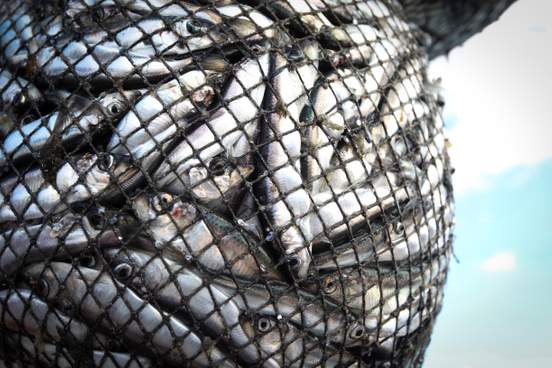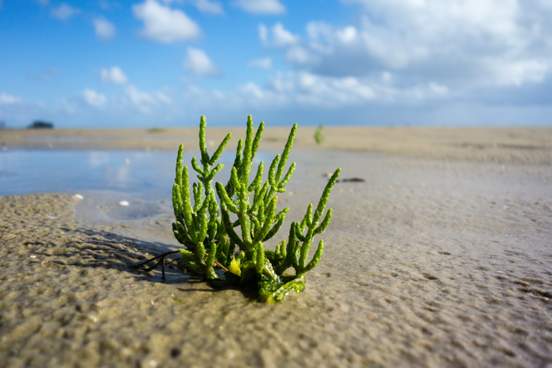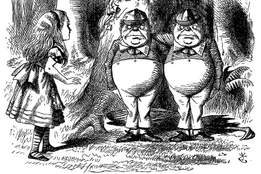
Scaramouch
Definition - a rascal or scamp
Capitalized, Scaramouch refers to a stock character from Italy’s commedia dell’arte who was typically both boastful and cowardly. Similar to how a more recent comedic character name, Debbie Downer from Saturday Night Live, has become generalized in the language, Scaramouch became scaramouch, one sense of which is, appropriately “a cowardly buffoon,” and a second, “a rascal or scamp,” which seems to be the sense Melville used in Stubb’s description of a cunning huckster who called himself the archangel Gabriel. Scaramouch doesn’t get used a lot these days–not enough commedia dell’arte stans out there, we suppose–but our research did turn up a letter to the editor of The Toronto Sun from 1988 whose author referred to a certain politician and diplomat as “a scaramouch and a master of political expediency.” Ouch. But could he do the fandango?
Stubb here alluded to a strange story told of the Jeroboam, and a certain man among her crew, some time previous when the Pequod spoke the Town-Ho. According to this account and what was subsequently learned, it seemed that the scaramouch in question had gained a wonderful ascendency over almost everybody in the Jeroboam.
— Herman Melville, Moby-Dick, Chapter 71 - The Jeroboam's Story

Farrago
Definition - a confused mixture or hodgepodge
As far as synonyms for clutter go, farrago is but one of many. To wit: gallimaufry, salmagundi, ragout, gumbo, and olio, etc. The narrator of Moby-Dick (let’s call him Ishmael) uses it to describe the Spouter-Inn landlord’s cryptic responses to questions about his (Ishmael’s) potential bedfellow for the night. Farrago is derived from the Latin far, for spelt. In Latin, farrago meant “cattle fodder,” but it was also used more generally to mean “mixture.” That’s the meaning that farrago carried into English. Today, we often use it for a jumble or mishmash of disorganized, haphazard, or even nonsensical ideas.
“I tell you what it is, landlord,” said I quite calmly, “you’d better stop spinning that yarn to me—I’m not green.”
“May be not,” taking out a stick and whittling a toothpick, “but I rayther guess you’ll be done brown if that ere harpooneer hears you a slanderin’ his head.”
“I’ll break it for him,” said I, now flying into a passion again at this unaccountable farrago of the landlord’s.
- Herman Melville, Moby-Dick, Chapter 3 - The Spouter-Inn

Gurry
Definition - fishing offal
Our current definition for gurry is quite broad: the offal (viscera and trimmings) that is the byproduct of fishing. But as recently as a 1953 copy of the unabridged Webster’s New International Dictionary: Second Edition it was slightly more specific: “the offal of fish, esp. the refuse from cutting up a whale and trying out the oil.” It’s not difficult to see why this was revised, namely because whales aren’t fish! The change to “fishing” makes sense, since one can technically “fish” for whales, even if one shouldn’t. Anyhoo, Melville went whole hog (er, whale) in penning his own definition of gurry:
Gurry, so called, is a term properly belonging to right whalemen, but sometimes incidentally used by the sperm fishermen. It designates the dark, glutinous substance which is scraped off the back of the Greenland or right whale, and much of which covers the decks of those inferior souls who hunt that ignoble Leviathan.
- Herman Melville, Moby-Dick, Chapter 94 - A Squeeze of the Hand

Hooroosh
Definition - a wild, hurried, or excited state or situation
Outside of occasional appearances at the National Spelling Bee, hooroosh doesn’t cause much of a hooroosh these days. Hubbub seems to do the job of describing a confusing ado or hullabaloo much more frequently than hooroosh, though the latter is just as fun to say–especially when you’re on a fanatical revenge mission against a whale that took your leg.
“Loftiest trucks were made for wildest winds, and this brain-truck of mine now sails amid the cloud-scud. Shall I strike that? Oh, none but cowards send down their brain-trucks in tempest time. What a hooroosh aloft there! I would e’en take it for sublime, did I not know that the colic is a noisy malady. Oh, take medicine, take medicine!”
- Herman Melville, Moby-Dick, Chapter 120 -The Deck Towards the End of the First Night Watch

Durst
Definition - archaic and dialectal past tense of dare
We English speakers love to trot out archaic, “old-timey”-sounding words and phrases, even when the constructions are not that old (re: ye olde)! But durst is one that is not so often durst.
“Just after dark that day, when one watch had retired below, a clamor was heard in the forecastle; and the two trembling traitors running up, besieged the cabin door, saying they durst not consort with the crew.”
- Herman Melville, Moby-Dick, Chapter 54 -The Town-Ho’s Story

Orison
Definition - prayer
Although, in the context of Melville’s beautiful and sad passage following the slaughter of four whales by the Pequod crew, it might seem as though “orison” should rhyme with “horizon,” this lovely Latin-derived synonym for prayer instead rhymes with Morrison, such as he of the vesper hymns “Light My Fire,” “Riders on the Storm,” and uh, “Peace Frog.”
It was far down the afternoon; and when all the spearings of the crimson fight were done: and floating in the lovely sunset sea and sky, sun and whale both stilly died together; then, such a sweetness and such plaintiveness, such inwreathing orisons curled up in that rosy air, that it almost seemed as if far over from the deep green convent valleys of the Manilla isles, the Spanish land-breeze, wantonly turned sailor, had gone to sea, freighted with these vesper hymns.
- Herman Melville, Moby-Dick, Chapter 116 - The Dying Whale

Samphire
Definition - a fleshy European seacoast plant (Crithmum maritimum) of the carrot family that is sometimes pickled or a common glasswort (Salicornia europaea) that is sometimes pickled
Samphire is a common name for several (apparently pickle-able) coastal plants, including those listed in our online dictionary definition, which makes determining which one Melville invoked in Moby-Dick quite the pickle! But such is the conundrum posed by common names for plants and animals, however delightful they might be (and samphire is a delightful word, being an alteration of earlier sampiere, from Middle French ((herbe de) Saint Pierre, literally, "St. Peter's herb"). The genus Salicornia, for example, contains dozens of edible species found around the world whose common names are different depending on where you live, from sea asparagus to sea beans, pickleweed to pickle grass. Some French speakers of maritime Canada even refer to them as titines de souris, which… we’ll leave to you to translate.
The sailors at the fore and mizzen had come down; the line tubs were fixed in their places; the cranes were thrust out; the mainyard was backed, and the three boats swung over the sea like three samphire baskets over high cliffs.
- Herman Melville, Moby-Dick, Chapter 47 - The Mat-Maker

Slobgollion
Slobgollion is, alas, not defined in our dictionary, though we do define slubberdegullion (“a dirty rascal”) and slumgullion (“a meat stew”). Slobgollion is neither of those, however, as made clear in Moby-Dick, which paints about as vivid a picture of the spermaceti-derived substance as anyone could hope for, probably forever.
There is another substance, and a very singular one, which turns up in the course of this business, but which I feel it to be very puzzling adequately to describe. It is called slobgollion; an appellation original with the whalemen, and even so is the nature of the substance. It is an ineffably oozy, stringy affair, most frequently found in the tubs of sperm, after a prolonged squeezing, and subsequent decanting. I hold it to be the wondrously thin, ruptured membranes of the case, coalescing.
- Herman Melville, Moby-Dick, Chapter 94 - A Squeeze of the Hand

Bombazine
Definition - a twilled fabric with silk warp and worsted filling or a silk fabric in twill weave dyed black
In one of the early chapters of Moby-Dick, Ishmael has a bit of fun at the expense of “bumpkin dand[ies],” i.e. “scores of green Vermonters and New Hampshire men, all athirst for gain and glory in the fishery.”Just look at the clothes they wear, forsooth! A bombazine cloak? LOL, poor Hay-Seed!
They are mostly young, of stalwart frames; fellows who have felled forests, and now seek to drop the axe and snatch the whale-lance. Many are as green as the Green Mountains whence they came. In some things you would think them but a few hours old. Look there! that chap strutting round the corner. He wears a beaver hat and swallow-tailed coat, girdled with a sailor-belt and sheath-knife. Here comes another with a sou’-wester and a bombazine cloak.
- Herman Melville, Moby-Dick, Chapter 6 - The Street





